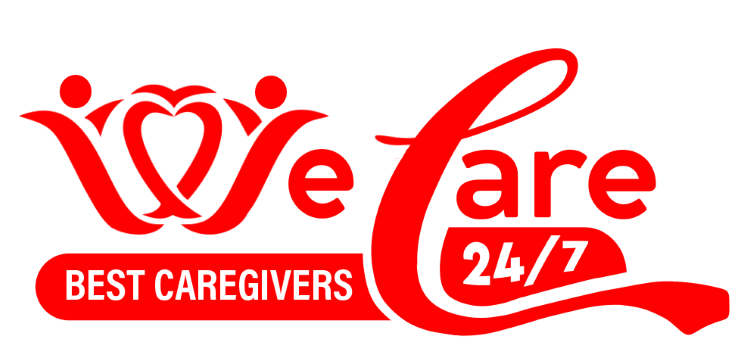How to Understand Dementia Stages: A Guide for NJ Caregivers

Navigating the Journey of Dementia: A Guide for New Jersey Families
Caring for a loved one with dementia can be a profoundly challenging, yet rewarding, experience. In New Jersey, an increasing number of families are confronting the complexities of this condition. Understanding the progression of dementia is one of the most effective ways to provide compassionate, person-centered care. This guide aims to demystify the stages of dementia, offering insights and practical advice specifically for caregivers and families across the Garden State.
At WeCare Home Caregivers, we recognize that knowledge empowers. By recognizing the typical signs associated with each stage, you can better anticipate needs, adapt care strategies, and access appropriate support, ensuring the highest quality of life for your loved one.
Why Understanding Dementia Stages Matters for NJ Caregivers
Dementia is a progressive condition, meaning its symptoms worsen over time. However, the pace and specifics of this progression differ significantly from person to person. Knowing what to expect, generally, allows caregivers to plan ahead, make informed decisions, and adjust their care approach proactively. This understanding can reduce stress, enhance safety, and improve the overall well-being of both the individual living with dementia and their caregiver.
For New Jersey families, this foresight is particularly valuable when navigating local resources, such as adult day care centers in counties like Bergen or Monmouth, or seeking support groups in Burlington or Essex. Early planning can open doors to benefits and services that might not be available as the condition advances.
The Three Main Stages of Dementia: A Simplified Approach
While various models exist, a common and helpful way to conceptualize dementia progression is through three broad stages: early, middle, and late. It’s important to remember these are guidelines, not rigid boundaries. Individuals may experience symptoms from different stages concurrently, and the transition between stages can be gradual.
1. Early Stage Dementia (Mild Cognitive Decline)
This initial stage often begins subtly, making diagnosis challenging. Symptoms are typically mild and may be mistaken for normal aging or stress. Family members might be the first to notice changes, while the individual may still be quite independent.
Key Characteristics:
- Memory lapses: Forgetting recent events, names, or where items were placed. These are more frequent or disruptive than occasional forgetfulness.
- Difficulty with complex tasks: Challenges managing finances, planning events, or following multi-step instructions.
- Word-finding difficulties: Struggling to recall the right word or name during conversations.
- Losing initiative: A reduced desire to engage in hobbies or social activities.
- Disorientation: Getting lost in unfamiliar places or losing track of dates.
Caregiving Tips for the Early Stage:
- Encourage independence: Support their ability to perform daily tasks as long as possible.
- Establish routines: Predictable schedules can reduce confusion and anxiety.
- Use memory aids: Calendars, sticky notes, reminders on phones, or clearly labeled drawers can be helpful.
- Promote engagement: Encourage social activities and hobbies they enjoy, perhaps with adaptations.
- Seek early diagnosis: Consulting with neurologists or geriatricians in NJ can lead to earlier interventions and access to support.
Many New Jersey families in this stage find value in companion care services. WeCare Home Caregivers can provide assistance with errands, meal preparation, and light housekeeping, allowing individuals to maintain their routines and social connections while ensuring safety.
2. Middle Stage Dementia (Moderate Cognitive Decline)
The middle stage is typically the longest and presents more noticeable and significant changes. Individuals require increasing levels of supervision and assistance with daily activities. Behavioral changes become more common.
Key Characteristics:
- Increased memory loss: Forgetting personal history, names of close family members, and significant life events.
- Challenges with ADLs: Difficulty with Activities of Daily Living (ADLs) such as dressing, bathing, grooming, and toileting.
- Personality and behavioral changes: Increased irritability, anxiety, suspicion, repetitive behaviors, or wandering.
- Impaired judgment: Making poor decisions regarding safety, finances, or personal care.
- Communication difficulties: Struggling to follow conversations, expressing thoughts, or understanding others.
Caregiving Tips for the Middle Stage:
- Patience and empathy: Understand that behaviors are often a result of the disease, not intentional defiance.
- Simplify communication: Use clear, simple sentences and one-step instructions.
- Ensure safety: Implement measures to prevent wandering (e.g., door alarms, secure yards) and remove hazards from the home.
- Structured activities: Engage them in simple, enjoyable activities that stimulate their senses and provide a sense of purpose.
- Explore respite care: Caregivers need breaks. Services like those offered by WeCare Home Caregivers can provide essential relief.
For families in counties like Camden or Ocean, resources such as adult day care programs can provide structured activities and supervision, while home care agencies like WeCare Home Caregivers offer personal care assistance and specialized dementia care in the comfort of the individual’s home.
3. Late Stage Dementia (Severe Cognitive Decline)
In the late stage, individuals lose the ability to respond to their environment, carry on a conversation, or control movement. They become completely dependent on others for all their personal care. This stage often requires extensive, 24-hour care.
Key Characteristics:
- Profound cognitive decline: Loss of awareness of recent experiences and surroundings.
- Physical deterioration: Difficulty walking, sitting, and eventually swallowing. Individuals may become bed-bound.
- Limited communication: Communication is often reduced to sounds, gestures, or single words.
- Increased susceptibility to infections: Pneumonia and other infections are common due to immobility and difficulty swallowing.
- Total dependence: Requiring complete assistance with all ADLs, including feeding.
Caregiving Tips for the Late Stage:
- Focus on comfort and dignity: Ensure their physical comfort, pain management, and cleanliness.
- Maintain communication through senses: Use touch, soothing music, gentle voices, and familiar scents.
- Prevent complications: Regular repositioning to prevent bedsores, assistance with feeding to prevent aspiration.
- Seek palliative care: Focus on symptom management and improving quality of life. Hospice services become appropriate.
- Support for caregivers: This stage is physically and emotionally demanding. Seek support groups or counseling.
Families throughout New Jersey, from Sussex to Cape May, can find invaluable support from hospice and palliative care providers during this stage. WeCare Home Caregivers can also provide round-the-clock specialized care, helping families navigate these complex needs with compassion and expertise.
Beyond the Stages: Individual Journeys and Unique Needs
While understanding these stages provides a useful framework, it is vital to remember that every individual’s journey with dementia is unique. Factors like the type of dementia (e.g., Alzheimer’s, Vascular, Lewy Body), co-existing health conditions, and individual resilience influence progression. Some individuals may experience rapid decline, while others remain in a stage for many years.
Focusing on the person, not just the disease, is paramount. Celebrate their strengths, adapt to their changing abilities, and maintain their dignity throughout the process. This person-centered approach ensures that care remains respectful and effective.
Leveraging New Jersey Resources for Dementia Care
New Jersey offers a wealth of resources for individuals with dementia and their caregivers. Connecting with these resources can alleviate burdens and provide specialized support.
- Alzheimer’s Association, Greater New Jersey Chapter: This organization offers a helpline, support groups, educational programs, and local resources throughout the state. Their services are invaluable for families navigating dementia. Visit Alzheimer’s Association NJ Chapter
- New Jersey Department of Human Services: Offers various programs and services for seniors and individuals with disabilities, which may include aspects of dementia care. Learn more about NJ DHS services
- County Offices on Aging: Every county in New Jersey has an office dedicated to senior services, which can provide information on local programs, transportation, and meal services.
- Geriatricians and Neurologists: Seek out specialists in major medical centers across NJ, such as those in Newark, New Brunswick, or Camden, for expert diagnosis and management.
How WeCare Home Caregivers Supports NJ Families
At WeCare Home Caregivers, we are dedicated to providing compassionate, skilled home care that adapts to the evolving needs of individuals living with dementia. Our caregivers receive specialized training in dementia care, enabling them to understand and respond effectively to the challenges of each stage.
We offer a range of services designed to support both the individual with dementia and their family caregivers:
- Early Stage: Companion care, medication reminders, transportation to appointments, cognitive engagement activities.
- Middle Stage: Personal care assistance (bathing, dressing), meal preparation, safety supervision, redirection for wandering, engaging in therapeutic activities.
- Late Stage: Comprehensive personal care, mobility assistance, feeding assistance, comfort care, and specialized support for bed-bound individuals.
- Respite Care: Providing temporary relief for family caregivers, allowing them to rest and recharge, knowing their loved one is in capable hands.
- Customized Care Plans: Developing tailored care strategies that respect individual preferences and adapt as the disease progresses.
We understand that inviting a caregiver into your home is a significant decision. WeCare Home Caregivers is committed to building trust through professionalism, empathy, and unwavering dedication to the well-being of your loved one. Our goal is to enhance their quality of life in the familiar comfort of their New Jersey home.
Take the Next Step in Dementia Care
Understanding the stages of dementia is a powerful tool for New Jersey caregivers. It allows for proactive planning, effective communication, and the provision of truly person-centered care. While the journey can be demanding, you do not have to face it alone.
WeCare Home Caregivers stands ready to partner with your family, offering the expertise, compassion, and support needed to navigate each stage of dementia with confidence and peace of mind. Contact us today to learn how our tailored home care services can make a meaningful difference for your loved one and your family.



